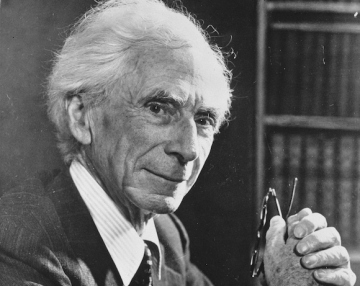Julian Baggini in Prospect:
 In philosophical circles, there are two Bertrand Russells, only one of whom died 50 years ago. The first is the short-lived genius philosopher of 1897-1913, whose groundbreaking work on logic shaped the analytic tradition which dominated Anglo-American philosophy during the 20th century. The second is the longer-lived public intellectual and campaigner of 1914-1970, known to a wider audience for his popular books such as Why I Am Not a Christian, Marriage and Morals and A History of Western Philosophy.
In philosophical circles, there are two Bertrand Russells, only one of whom died 50 years ago. The first is the short-lived genius philosopher of 1897-1913, whose groundbreaking work on logic shaped the analytic tradition which dominated Anglo-American philosophy during the 20th century. The second is the longer-lived public intellectual and campaigner of 1914-1970, known to a wider audience for his popular books such as Why I Am Not a Christian, Marriage and Morals and A History of Western Philosophy.
The public may have preferred the second Russell but many philosophers see this iteration as a sell-out who betrayed the first. This view is best reflected in Ray Monk’s exhaustive biography. The first volume, which went up to 1921, was almost universally acclaimed, but some (unfairly) condemned the second as a hatchet-job. It was as though Monk had become exasperated by his subject.
Monk admired the logician Russell who “supports his views with rigorous and sophisticated arguments, and deals with objections carefully and respectfully.” But he despaired that in the popular political writings that dominated the second half of Russell’s life, “these qualities are absent, replaced with empty rhetoric, blind dogmatism and a cavalier refusal to take the views of his opponents seriously.” In Monk’s view, Russell “abandoned a subject of which he was one of the greatest practitioners since Aristotle in favour of one to which he had very little of any value to contribute.”
Monk’s assessment has become orthodoxy among professional philosophers. But…
More here.
